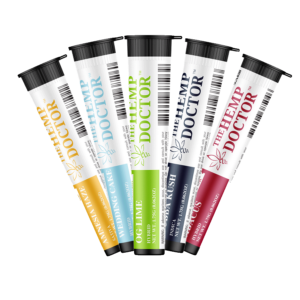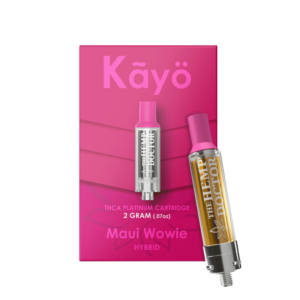Missouri is a recreational and medical marijuana state since 2022, with over 200 adult-use dispensaries. The state broke its monthly record in March with $124.7 million in sales on adult-use and medical marijuana transactions. The planned expansion of the cannabis market in Missouri further adds to the excitement.
If you’re only reading this now, you’ve missed Missouri’s online application acceptance window, which was April 15-29 and July 2024. The third round of cannabis microbusiness license applications will not commence until March 2025.
That said, now is the perfect time to prepare by understanding Missouri’s dispensary licensing application process. Keep reading to learn what it takes to submit your microbusiness licensing application successfully and how to open up a dispensary in Missouri in general.
Medical Cannabis
Yes
Recreational Cannabis
Yes
Hemp-derived
Yes
Qualifying Age
21
Step 1: Anticipate Missouri’s Licensing Cycle
The issuance of Missouri dispensary licenses operates on a cycle basis. That is, the state does not give out licenses every day. It runs on a schedule with only limited slots. The Division of Cannabis Regulation (DCR) awards licenses among successful applicants through a lottery system.
There are two types of dispensary retail licenses: comprehensive and microbusiness. The comprehensive dispensary licensing program refers to larger-scale cannabis operations, such as dispensary licenses, cultivation licenses in Missouri, and wholesaler licenses. Meanwhile, the microbusiness license is for businesses small-scale dispensaries and wholesalers who don’t own a facility yet.
Missouri plans to add only microbusiness dispensaries, and applications will not be accepted until March 2025.
Step 2: Create A Business Plan

There are many moving parts to consider when starting a cannabis business, so drafting a plan should be done as soon as possible. Especially in a cannabis market like Missouri, where slots are limited for dispensary licenses, drafting a business plan is a requirement by the DCR that you shouldn’t ignore.
As a rule of thumb, a cannabis business plan must include the following information:
- Dispensary’s physical location
- Source of capital
- Financial plan
- Inventory suppliers
- Revenue projections
- Operations plan
- Training plan
- Timelines and milestones
- Equity and diversity plans
- Community and environmental impact plans
- Marketing strategies
- Sales strategies
- Security plan
- Point-of-sale and compliance software
- Organizational chart
- Executive summary
- Company vision
- Market research
- Competitor analysis
- Product and service description
- Any other relevant information about your business
| 🛑 Important! Aside from a business plan, DCR also needs you to submit a site plan that includes schematic drawings of the interior and exterior of your chosen dispensary space. The site plan should clearly show the entrance, exits, customer service areas, cameras, and limited entry areas. |
Step 3: Find Your Dispensary’s Location
If you’ve been in business for some time, you know how crucial a location is for success. The same is true for dispensaries.
Fortunately, you’re not required to immediately lease or own a commercial space when you submit your online licensing application. However, you need to have been able to zero in on a specific location for your business and propose it in your application.
Your pool of potential locations may be limited because not all municipalities of Missouri allow cannabis businesses. In the municipalities of Missouri, where cannabis businesses flourish, there are varying sets of requirements to follow. Typically, the process of getting location approval looks like this:
- Register with the municipality to obtain a local business permit or license.
- Get approved for researching the location of your business within the municipalities’ borders and proper zoning districts.
- The local authorities will provide you with the specific municipality and zoning requirements, such as restricted business hours and manner of operation.
Regardless of each Missouri municipality’s unique zoning rules and protocols, the state has established overarching zoning requirements all municipalities must follow, such as dispensaries not being within 1,000 feet of school centers, daycares, or churches.
Aside from the zoning rules, your space should still be able to meet the following features for increasing potential success:
- Spacious and aligns with your business plan
- Good foot traffic
- Enough parking space
- Has the potential to be scaled or expanded
- Within your proposed budget
- Doesn’t need a lot of retrofitting or renovations
- Low to a good amount of competition
| 🍏 Pro Tip Hire a local real estate professional specializing in cannabis real estate to find a suitable location for your business. These professionals have been in the area for some time and know the ins and outs of cannabis real estate. |
Step 4: Research & Budget the Costs
Depending on the scale of your business plan, you might need millions of dollars or hundreds of thousands to set up a dispensary in the US. But how much to open a dispensary in Missouri?
Here’s a ballpark cost of the aspects of opening and maintaining a cannabis dispensary in Missouri yearly:
| Annual Rough Cost of Starting and Operating A Missouri-Based Dispensary | |
| Lease | $18,000 to $72,000 (or $1,500 – $6,000 monthly) |
| Renovation | $25,000 to $50,000 |
| Licensing | $7,672.28 annually and $18,632.68 every third year |
| Staff Salary | $126,710 or more |
| Hardware, Software, & Security | $100,000 |
| Inventory | $2,000 per pound x 1,000 pounds = $2,000,000 |
| Marketing | $100,000 |
| Minimum Grand Total: $2.4 million | |
Step 5: Secure Funding
Now that you have an idea of the cost of opening and maintaining a dispensary in Missouri, it’s time to find the funding. As somebody in the business of selling cannabis and hemp-derived products, you probably know by now that your funding options aren’t the same as with a traditional entrepreneur.
Due to marijuana’s federal legality, it’s not easy to qualify for SBA loans and the like. However, there are still loan options you can explore. Below are some of the most popular funding options for a cannabis business.
- Self-funded: One of the quickest ways to secure funding is to have already the means to fund it.
- Family and friends: Another quicker way to find capital is to ask for a loan and investment from different family members and friends.
- Business Partners: Look for business partners who can financially provide and contribute good strategic advice. Be sure to check their eligibility as partners. The state requires a dispensary’s business partners to meet certain criteria.
- Bank loans: You may be eligible for a business or personal loan, depending on your credit status. However, not all mainstream banks and financing institutions will lend to cannabis businesses. Try private-owned and local banks. Some of them cater to niche businesses.
- Private funds: Angel investors, private equity, and venture capital are examples of private funds. One con of this option is this route will considerably decrease your share of the business.
- Crowdfunding: Online platforms like Arcview Capital, Enexis, and Budbo are crowdfunding sites you can use to seek funding opportunities from the public.
- Brokers: Brokerage companies like FundCanna can help you fund startup expenses.
Step 6: Apply for a Missouri Microbusiness Dispensary License
Cannabis laws in Missouri require those who wish to start a dispensary in the state to get a license. To be eligible for one, they must comply with the state rules, such as having a proposed business location, a business plan, and the fund.
The Department of Health and Senior Services (DHSS), with DCR under its wing, offers a glimpse of the application process for aspiring cannabis business owners. They also penned a microbusiness application user guide.
Here’s an overview of how the online portal application works:
1. To start, create an account on this page: https://mo-public.mycomplia.com/login. Log in and answer all of the questions truthfully. Pay the application licensing fees to seal the deal.
2. View the checklist of documents you must submit and gather them all.
3. Log in to the portal and click “Create an Application.” Start uploading all of the required documents listed from the checklist. Here are some of the documents and information you need to submit to the online application:
- Provide personal details such as your full name, contact information, email address, birth date, and the license type you’re meant to apply for.
- Information about ownership and management structure. Each stakeholder should be provided with in-depth personal details like name, ownership percentages, voting interest, social security number, etc.
- Proof of the dispensary’s legal business name, partnership agreement, operating agreement, tax ID, etc.
- Facility location (GPS coordinates, congressional district, address, etc.)
- Site and security plan (diagrams of the rooms, square footage, etc.)
- Business plan
- Representatives for communication
- The proof of eligibility for a microbusiness license
- Valid government ID
3. Completed applications submitted within an active licensing application period will be approved or denied within 150 days. This will be communicated via email, but you can always check the status of your application through the online portal.
4. If you’re among the successful applicants, your bid will be entered into Missouri’s lottery system, and those lucky enough to be picked will be granted a license.
5. Those picked to be awarded a license must pay the licensing fee within 30 days.
6. The final stage of the licensing application involves a “commencement inspection,” where dispensaries will perform a mock sale to check the accuracy and working condition of their state-certified seed-to-sale platform.
| 🧠 Reminder Those with existing licenses for medical marijuana dispensaries, comprehensive, or microbusiness cannot apply for another microbusiness facility license in Missouri. |
Step 7: Layout the Inside of the Dispensary

Be efficient and improve customer service by drafting versions of your dispensary’s interior layout. Assign the following areas in a way that makes the most sense to your business, security plan, comfortability of your customers, and state-location compliance:
- Accessibility of customers and employees to their areas
- Cashier’s area
- Product display area
- Parking space
- Entrance and exits
- Waiting rooms
- Comfort rooms
- Inventory storage
- Staff lounge
- Locker rooms
- Office
Here’s the list of Missouri’s non-negotiables that may impact the way you arrange and design your dispensary’s interior layout:
1. There must be only one entryway for the general public (drive-through or pickup windows are exempted), and it should lead to an area where a facility agent screens individuals according to their type of consumer. No cannabis products should exist at this point.
2. Except for qualifying patients, anyone under 21 shouldn’t go beyond the public access point area.
3. The dispensary must have at least one employee present for every three customers. He or she can temporarily leave the customer unattended if she’s tending to a customer at the drive-through or pickup window.
4. Marijuana products and accessories must not be visible from outside the dispensary.
5. You may display samples of your product but in a secure place. No one can consume the sample, but it can be taken out for close inspection. Products not meant to be displayed should be stored in a secured area within the facility.
6. Drive-through lanes should have drawers or pneumatic tubes for dispensing cannabis products. They should also be constructed so that customers can be seen for verification of identity purposes. Video cameras should also be installed and should be continuously recording at all times.
7. At egress points, a sign that says, “It is against the law to operate a dangerous device, motor vehicle, aircraft, or motorboat while under the influence of marijuana” should be posted.
8. The dispensary license should be displayed within twenty feet of the main entrance.
9. A sign prohibiting the consumption of marijuana in the area should be posted at the dispensary’s employee and public access points.
10. A physical barrier should exist between the waiting room and the limited-access area where cannabis products are stored. Only those qualified to purchase may enter that barrier.
Step 8: Secure Your Cannabis Store
A dispensary should be able to secure the people and the products inside by following certain safety and security measures. This includes using or installing devices that:
- Detect unauthorized intrusion
- Exterior lighting
- Electronic video monitoring
- Printer for the video camera digital image
- Silent or manual alarms that immediately alert local enforcement authorities
- Security film or shatter-proof glass doors
- Vaults
- Locking mechanism
- Biometric identification systems stationed at limited access areas
Step 9: Hire Your Staff
An average-sized dispensary in Missouri will have a team made of the following roles:
- The employee in Charge or supervisor
- Budtenders
- Cannabis sales associates
- Security
- Inventory person
- Compliance Specialist
Depending on your business goals and scalability, your team may be more comprehensive than that or even smaller. Regardless of your organizational chart, align your recruitment and employee management style with Missouri’s ordinances. Some of the most important rules include:
- Procuring cannabis employment or agent IDs for your staff
- Processing fingerprints
- Conducting background checks
- Make sure they’re of the right age
- Requiring new hires to undergo certification training
- Pay payroll taxes
Step 10: Review Missouri’s Dispensary Compliance
Now that you’re on your way to opening a cannabis store in Missouri, you need to follow a few key points to stay compliant with the state’s laws.
- Dispensaries can’t sell, deliver, or give cannabis products to anyone under the age of 21 or those who are inebriated. Facility agents should ask for a valid identification and proof of age to verify a customer’s age.
- The cannabis purchase limit in Missouri is three ounces of cannabis products per transaction.
- Dispensaries are required to track all cannabis products at every stage of their lifecycle—from transportation to being sold.
- In Missouri, you’re only allowed to sell cannabis flower, marijuana seeds, edibles, concentrates, beverages, topicals, cannabis paraphernalia, and other non-cannabis items.
Step 11: Research Your Source and Learn How to Intake Inventory
As a licensed cannabis microbusiness owner, you’re probably not going to be a vertically integrated cannabis business. Hence, you would need trusty suppliers to supply your inventory with fresh stock repeatedly. At the least, these are the following things you need to check on an inventory source:
- Whether they’re licensed
- The products they carry
- Safety and quality of those products
- Smoothness of the transaction
- Trustworthiness and reliability
- Product prices
- Compliance with Missouri’s laws on packaging and labels
Missouri insists that all licensed dispensaries follow the proper way of taking inventory inside the store. Here’s what it looks like.
Once the ordered inventory arrives at your dispensary’s location, you need to review and receive a manifest before bringing the products inside. The supplier you ordered from creates this manifest, which contains the harvest, weight, unit of measure, and cost of the products.
Reviewing the manifest includes physically inspecting the products and checking whether what is written in the manifest is correct. You then encode this information in Metrc (DCR’s chosen intake system).
Step 12: Device a Marketing Plan
As soon as your store is deemed operable, you need to get the word out there that your dispensary is open. Marketing can help with that.
Once you’ve hired the right person to run branding and marketing, marketing has to follow a few advertising, packaging, and labeling regulations. These are:
- Marijuana advertisements shouldn’t contain misleading statements, curative implications, contents that are attractive to children, inconsistent information with labeling,
- Outdoor signage must comply with local ordinances and use that legal licensee’s name or business name.
- If you’re selling something unique to your brand, all product packaging and label designs must be submitted for review. Know more about Missouri’s cannabis packaging design guidelines.
Final Thoughts
By foreseeing the steps of applying for a dispensary license and opening a store in Missouri, you’re positioning your dreams of owning a cannabis business way ahead of the curve. Once you do win the lottery (literally speaking), partner with the right cannabis wholesale team to supply you with the best products the cannabis industry can produce.
Meet The Hemp Doctor Wholesale, a premier legal cannabis wholesale supplier across the 50 states with more than 15 years of proven experience. Whether you need a white-label service for your brand or choose to sell our familiar branded products, we’re game.
Speak with us at 1-888-206-3832 or email us your queries and concerns at [email protected].
Disclaimer: We always strive to provide factual and updated information, but this blog is not meant to provide legal advice. Always consult with a lawyer or relevant professional who can help you understand the legal nuances of opening a dispensary in New York.
FAQs
How much does it cost to open a dispensary in Missouri?
The startup cost of opening a dispensary in Missouri varies and depends on the size of a planned business. Expect the range to be anywhere between hundreds of thousands of dollars to millions.
How do I get a license to open a dispensary in Missouri?
Missouri is not currently accepting licensing applications. However, if the state welcomes another batch of applicants in a few years, it will have an online portal that caters to that.
How much does a dispensary make in Missouri?
The income of dispensary owners in Missouri in a year can vary from $100,000 to $500,000. If a business is successful and large enough to produce it, some owners can make a net income of $1,000,000.
How do dispensaries in Missouri work?
You can buy both medical and recreational cannabis in Missouri, but with limitations and minimum qualifications. For example, you need to be at least 21 years old to be able to purchase weed, only buy up to 3 ounces of cannabis products one transaction at a time, etc.
How to sell to dispensaries in Missouri?
You must secure a license to sell wholesale cannabis products to Missouri-based dispensaries. Since the comprehensive licenses reserved for large-scale cannabis businesses are closed, your only hope is for Missouri to open the licensing applications for cannabis microbusiness wholesalers.
How many dispensaries are in Missouri?
Missouri has 25 actively operating dispensaries.
What are the Missouri agent ID card requirements?
Provide personal information, a copy of an employment offer from a licensed dispensary, a government-issued ID, and a digital photo.







